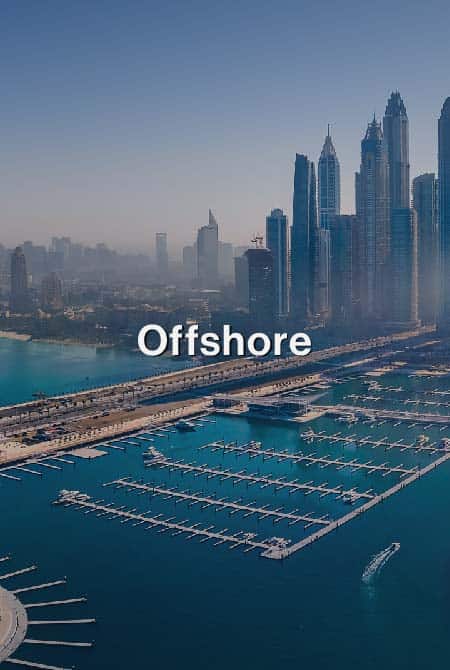The food industry in Dubai is thriving, with a wide range of restaurants, cafes, and markets offering cuisine from all over the world. One key aspect of Dubai’s food industry is foodstuff trading, which plays a crucial role in ensuring that residents and tourists have access to high-quality products.
Foodstuff trading is a vital part of Dubai’s economy, as the city relies heavily on imported goods to meet the demands of its diverse population. This creates a wealth of opportunities for entrepreneurs looking to start their own foodstuff trading business in Dubai.
Starting a foodstuff trading business in Dubai comes with multiple benefits. Additionally, Dubai’s tax-free environment and business-friendly policies make it an attractive destination for foreign investors looking to establish a presence in the food industry. So, let’s understand the steps involved, the cost of Foodstuff Trading license in Dubai, as well as the necessary licenses and permits.
- What is the Foodstuff Trading Business?
- Types of Foodstuffs That Can Be Traded
- Food Safety Standards and Certifications
- Documents Required to Open a Foodstuff Business in Dubai
- Steps to Start a Foodstuff Trading Business in Dubai
- Foodstuff Trading License Cost in Dubai
- Role of Dubai Municipality in Foodstuff Trading Business in Dubai
- Role of Dubai Customs
- Get Your Foodstuff Trading License Now!
What is the Foodstuff Trading Business?
Foodstuff trading involves the buying and selling of food products, including ingredients, processed goods, and beverages. It encompasses activities such as sourcing, importing, exporting, storing, and distributing food items.
Types of Foodstuffs That Can Be Traded
Foodstuff trading can involve a wide variety of products, categorized into:
Perishable Goods: These are products with a limited shelf life, requiring special handling and storage conditions. Examples include:
- Fresh fruits and vegetables
- Meat and poultry
- Dairy products
- Seafood
Non-Perishable Goods: These products have a longer shelf life and can be stored for extended periods without significant deterioration. Examples include:
- Grains and cereals
- Spices and herbs
- Canned goods
- Dry fruits and nuts
- Processed foods
Dubai’s diverse population and cosmopolitan lifestyle have created a strong demand for a wide range of food products. There is a growing demand for healthy and organic food products, driven by health-conscious consumers. The convenience and accessibility of online food ordering and delivery services have also significantly impacted the food industry in Dubai.
Food Safety Standards and Certifications
Dubai has strict food safety regulations to ensure the quality and safety of food products. Compliance with these regulations is essential for foodstuff traders operating in the emirate. Some of the key food safety standards and certifications include:
1. Emirates Authority for Standardization and Metrology (ESMA)
ESMA sets and enforces food safety standards in Dubai.
2. HACCP (Hazard Analysis Critical Control Point)
This is a food safety management system that helps identify and control potential hazards in food production.
3. ISO 22000
This is an international standard for food safety management systems.
4. Halal certification
For food products targeting Muslim consumers, Halal certification is often required, ensuring that the products comply with Islamic dietary laws.
Foodstuff Trading License in Dubai
To operate a foodstuff trading business in Dubai, you will need to obtain the necessary licenses and permits from the Department of Economic Development (DED) and relevant authorities. The specific requirements may vary depending on the nature of your business and the types of food products you will be trading. However, a commercial license is generally required for any commercial activity in Dubai. It can be obtained from the Department of Economic Development (DED).
If your business involves importing or exporting food products, you will need an import/export license from Dubai Customs.
Documents Required to Open a Foodstuff Business in Dubai
When starting a foodstuff trading business in Dubai, you will need to submit the following documents to the relevant authorities.
- Passport copies of business owners or partners.
- Visa copies
- Company name approval
- Memorandum of Association (MOA)
- Office space lease agreement
- NOC (No Objection Certificate), if required
- Food safety plan
- Health certificates for all food handlers
- Equipment and machinery list
- Bank statements
Steps to Start a Foodstuff Trading Business in Dubai
Here are the steps to obtain a foodstuff trading license in Dubai, UAE:
1. Conduct Thorough Market Research
Understand current trends, consumer preferences, and competition. Determine which specific food products or cuisines you want to focus on. Familiarize yourself with the rules and procedures for importing and exporting food items in Dubai.
2. Choose the Right Business Structure for your Business
Decide whether to set up your business on the mainland or in a Free Zone. Each has its benefits:
- Mainland allows trading within Dubai and the UAE, full business ownership for most activities, but may have higher setup costs.
- Free Zone offers 100% ownership, tax benefits, and simplified import/export procedures but restricts trading within the UAE without a local distributor.
Consider factors like ownership, cost, location, and scope of business while choosing the structure.
3. Finalize a Trading Name for your Foodstuff Company
In the UAE, all legal entities must have an authorized trading name for their businesses. As a result, the same standard applies to food trade companies. In addition, you must make a list of three to four names that you want to use as your legal name and submit it to the appropriate authorities.
Once you’ve filed your request, the department will review it and approve all the eligible trading names. Hence, you have the freedom to select the one that best expresses your fundamental values and philosophy. However, when shortlisting names for your organization, remember to adhere to all naming convention regulations.
4. Obtain the Foodstuff Trading License
Apply for a commercial license through the DED. This license allows you to trade in various food products in the UAE. If you plan to import or export food products, obtain an import/export license from Dubai Customs.
Here is some common foodstuff trading activities covered under this license:
- Fresh fruits and vegetables
- Dairy products
- Meat and poultry
- Seafood
- Grains and cereals
- Bakery items
- Confectionery
- Canned goods
- Beverages (including soft drinks, juices, and alcoholic beverages, subject to specific regulations)
- Spices and seasonings
- Organic food products
- Food supplements
- Preserve food
- Frozen food
Other Related Activities:
- Import and export of food products
- Storage and distribution of food items
- Wholesale and retail trade of food products
- Trading of food ingredients and additives
- Food processing and packaging
- Trading of food equipment and supplies
Depending on your specific business activities, you may need additional permits, such as health permits, fire safety permits, or environmental permits.
5. Register with the Dubai Municipality
Register your business with the Food Control Department of Dubai Municipality to comply with food safety regulations. This step is crucial for obtaining the necessary permits for trading food products. Ensure that your business meets all food safety and hygiene standards, including proper storage facilities and transportation methods to prevent contamination.
6. Secure a Physical Location and Warehousing
Depending on the business structure, you may need to have physical office space. Ensure it meets all regulatory requirements. Secure a warehouse that complies with Dubai Municipality’s guidelines for food storage, such as
- Containers that are free of contamination and composed of high-quality materials
- Proper food composition partitioning
- Temperature, humidity, and other factors are monitored 24 hours a day, seven days a week to keep food fresh
- Ventilation
- Sanitation of the warehouse regularly to keep it germ-free
7. Open a Corporate Bank Account
Choose a bank in Dubai that offers services tailored to foodstuff trading businesses. Provide all necessary documentation, including the trade license, shareholder information, and a company business plan.
8. Source and Establish Relationships with Suppliers
Find reliable suppliers both locally and internationally. Negotiate favourable terms, including pricing, quality, and delivery schedules. Establish strong relationships with your suppliers to ensure a consistent supply of products.
Foodstuff Trading License Cost in Dubai
Obtaining a foodstuff trading license in Dubai generally requires an investment of AED 15,000 to AED 30,000. This includes administrative approvals, the foodstuff trading license cost in Dubai, external certificates, and more. The overall cost varies depending on your location, warehouse size, number of visa permits, and other factors.
Remember that the foodstuff trading license cost in Dubai can vary between the mainland and the free zone. If you wish to trade with ease in Dubai and the rest of the UAE, you should apply for a mainland foodstuff trading license. Otherwise, you can establish your food business in any of the free zones. Autonomous governing bodies oversee them. As a result, business laws in free zones are more liberal.
Role of Dubai Municipality in Foodstuff Trading Business in Dubai
Dubai Municipality (DM) is the government agency whose Food Safety Department is responsible for inspections and regulation of best practices for foodstuff trading in Dubai. Therefore, every company trading foodstuff in Dubai must register with the Dubai Municipality.
Their responsibilities include:
- The Municipality issues food establishment licenses, health permits, and other necessary permits for foodstuff trading businesses.
- Enforcing food safety regulations to ensure the quality and safety of food products in the market.
- They conduct regular inspections of food facilities and act against businesses that violate food safety standards.
- Promoting food safety awareness programs and campaigns.
- Resolving food safety complaints.
- Supporting local food producers.
If your business will be engaging in the import of foodstuff, you must conform to the following requirements by the Dubai Municipality Food Control department:
- Register your company in the DM Food Import and Re-export System (FIRS) – This is to be able to apply for food import requests and to be able to follow up on the status of your import, from inspection to release
- Acquire food label approval for all items that you will be importing – This is to confirm that your food labeling follows government standards to avoid rejection of the consignment
- Register all food items in the DM Food Import and Re-export System (FIRS) before importing them
- Obtain a FIT analysis result from the Dubai Central Food Laboratory – This is advisable for the food items you will be importing to specify whether the item is fit for human consumption
Role of Dubai Customs
Dubai Customs plays a pivotal role in the foodstuff trading business in Dubai. As the regulatory body for imports and exports, it ensures that all food products entering or leaving the emirate comply with relevant laws, regulations, and quality standards.
If you plan to import or export food products, obtain an import/export code from Dubai Customs. This code is necessary for clearing goods through customs and conducting international trade.
Dubai Customs also conducts inspections and verifications of food products to ensure that they meet the required quality standards and comply with import/export regulations.
Get Your Foodstuff Trading License Now!
Starting a foodstuff trading business in Dubai is a great opportunity for entrepreneurs and investors. With Dubai’s growing market and its position as a global trade hub, there’s a lot of potential for success in this field. However, setting up a business involves many steps, including getting the right licenses, understanding local regulations, and ensuring you meet all food safety standards.
That’s where Shuraa Business Setup can help. We offer a wide range of services to make the process easier for you, including help with foodstuff trading licenses, finding the right office space, visa assistance, PRO services, and more. Our team of experts will guide you through every step to ensure your business starts off on the right foot. Get in touch with Shuraa Business Setup today to get all the support you need to start your foodstuff trading business in Dubai!
Contact us at +971 4 4081900, WhatsApp at +971 50 7775554, or send us an email to [email protected].












